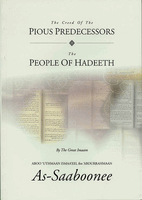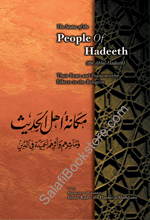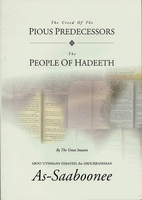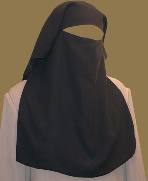
I can't refuse the opportunity to put my 2 cents in on the veil issue, hey everyone else is!
We don't always come to the veil with hikmah, at least I didn't. My veiled days began about six years ago when I was doing NGO work in East Africa. The first time I wore it was at a ritual stick dance performed during a wedding. Usually, women aren't allowed to watch, but unmarried teenage girls scamper up the limestone walled houses to peek from rooftops in black veils. So, I borrowed one and followed my friends up to the top of the house of Saidi Wadi, a neighbor to watch the display in a sandy clearing between usually inhabited by stray donkeys and shoesless kids. I felt like one of them.
My friend, who usually never put on the veil (that the Swahili ironically call ninja), so she gave it to me to keep. I began wearing it on a part time basis, especially when traveling to the mainland, in the cities and to social events at night. I enjoyed the anonymity of the thing. You see my tiny remote Island off the coast of Kenya, just miles from Mogadishu with no cars was clad with characters, escapees who settled on an island paradise lost in the past. So me being the American Muslim Girl gave me automatic celebrity status amongst the locals. I was even more popular than Princess Caroline of Monaco and her Austrian boyfriend, the Prince of Hanover, who resided around the bend (I am serious). So as the word spread, I had a little following, including a young man who wanted to teach me Kiswa, an enchanting little girl named Fatma and a crazy many who claimed that I stiffed him on a tip for carrying my bags from the airport. And I amused forgot the 20 families who wanted me to come to their homes for lunch. Suddenly my part-time veil became a full-time part of my wardrobe. Ah, it gave me peace to be able to weave through streets without constantly changing course to avoid the banter of onlookers or having to race past Mariam's store, without hearing her say "mwanafunzi (student)," which was her code for come buy something. You see my veiling wasn't a result of any "knowledge" or act of eman. I was just trying to be anonymous.
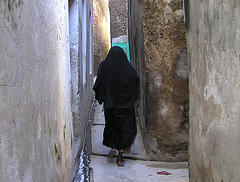
Once back in the states my veil came off, but not for long. I started teaching at an Islamic school in my home town. I was unmarried, young and . . . In any case, working in a mixed environment caused me to dig out my old veil and work it back into my life, at least between the hours of 8:00am to 3:30pm. Again it was part time, but it sent a clear message to my male co-workers and again allowed me a sense of personal space that I seemed to be denied without it.
By the end of my first year teaching I was married and my veil became a permanent fixture in my life. I officially became known as a niqaabi. Over the years, its styles changed due to function and increased knowledge of proper hijab. I learned a lot of about my veil. But up until a few years ago, my veil was to prevent males form looking in and I never reflected how it affected the one looking out.
Now, here comes the part about good ole' Jack Straw. Mr. Straw's statements that the Islamic veil inhibits communication between it wearer's and its onlookers is probably an opinion shared by most none Muslim's, but never expressed publicly. Due to Mr. Straw's position in the lime-light and readily available access to the media - he was able to beat everyone to the punch. Now, on several occasion people have come close, but never going as far as to state the obvious as did Mr. Straw. Yes, this piece of material is a barrier. You can't see the women's face, her nose, her mouth and expressions. It muffles the voice and it does make communication difficult. On numerous occasions, I have smile at someone and got no response. I can make all kinds of faces, pick my nose and stick out my tongue and the onlooker would have no inclination of the gestures that I had communicated. But that's the point!
And what about the Muslim women that Straw had met with? Why were they there? I mean, I understand that they were meeting with him to discuss community issues, but does the veil inheritantly give the muslim women access to what would normally be haram without it? Do we forget that that it is double sided - its view I mean. The paradox of this piece of fabric isn't just that once tied or snapped we talk loud, mix with men, stare at men and roam about town unaccompanied by our husbands, sons and brothers. I think this is what is missing in the Muslim Veil debate - how is this piece of material a manesfastation of a muslim women's understanding of her religion. Isn't it designed to be a guard for her, as well? It is a reminder of modesty and manners - to lower our gazes, watch what you say, mute your voice and protect yourself from contact with unlawful males. So if these believing women understand their veils - then why are they meeting with Mr. Straw? I read that even after being asked to removed them (to open the lines of communication), some of them did, while others refused. Now, I am not suggesting that muslim should not have a voice, but keep your veils on and follow the examples of the believing women, only through their wisdom will be truly be rewarded for our efforts.
Here are a few examples of evidences from the the Book of Allah and the Sunnah of His Messenger (alahi salatu wa salaam), this was pasted from
www.muslimconverts.com. (I cannot vouch for this site, however this piece on niqaab summarized the statements made by Shaykhs, Bin Baaz, Uthaimeen and Fawzan - (May Allah Preserve them) in the book
Four Essays on the Obligation of Veiling. According to Shaikh 'Abdul-'Azeez 'Abdullah bin Baaz and Shaikh Muhammad ibn Saalih Al-'Uthaimeen said that the Niqaab is indeed wajib (compulsory upon the believing women and their argument is strong and convincing, Others such as the Muhaddith of our time Shaikh Muhammad Naasiru-Deen Al-Albaanee said that the Niqaab is not wajib (compulsory) but rather Mustahab (highly recommended) and this argument is also strong and convincing.Many of the great Ulema of the past have also said that Niqab is fard (compulsory). Therefore the safe option to take is to wear the Niqab. For if you wear it and it was not fard (compulsory). Then you will InshaAllah at least get the reward for practicing something that the Prophet peace be upon him approved of and his wives and the sahabiyat did. And they are the roles models for the women of this Ummah with regards to how a women should dress and behave. So you do not loose out at all if you wear the Niqab.Niqaab is indeed a practice of the Sahabiyaat and the mothers of the believers.Shaykh al-Islam Ibn Taymiyah said: The truth of the matter is that Allaah has made two types of adornment: visible and invisible. It is permissible for a woman to show her visible, outward adornment to people other than her husband and mahrams. Before the verse of hijab was revealed the women used to go out without a jilbaab and the men could see their faces and hands. When it was permissible for a woman to show her face and hands, it was permissible to look at them because it was permissible for a woman to show them. Then when Allaah revealed the verse of hijab and said (interpretation of the meaning): ÂO Prophet! Tell your wives and your daughters and the women of the believers to draw their cloaks (veils) all over their bodies (i.e. screen themselves completely except the eyes or one eye to see the way). That will be better, that they should be known (as free respectable women) so as not to be annoyed. And Allaah is Ever Oft-Forgiving, Most MercifulÂ[al-Ahzaab 33:59] then the women began to observe hijab in front of men. It was narrated that ÂAaÂishah (may Allaah be pleased with her) said: ÂMay Allaah have mercy on the women of the Muhaajireen. When Allaah revealed the words (interpretation of the meaning)Âand to draw their veils all over Juyoobihinna (i.e. their bodies, faces, necks and bosoms)Â
Â[al-Noor 24:31], they tore their aprons and covered their faces with them. (Narrated by al-Bukhaari, 4480)The Mufassireen, such as Al-Qurtubi, site in their Tafseer of the Ayah on Jilbaab (Al-Ahzab 33:59) that the Jilbaab is: "a cloth which covers the entire body... Ibn 'Abbaas and 'Ubaidah As-Salmaani said that it is to be fully wrapped around the women's body, so that nothing appears but one eye with which she can see." [Tafseer Al-Qurtubi]. However, aside from this Tafseer, we do in fact have an authentic Hadeeth mentioning Niqaab. The Prophet (peace be upon him ) commanded: "A woman (pilgrim) does not cover her face with a Niqaab (i.e. does not tie or affix) nor should she wear gloves." [Al-Bukharee; Muslim; Saheeh Abi Dawood #1600; authenticated by Al-Albaanee]. Thus, from this authentic Hadeeth, we can clearly see that the Sahabiyaat (RA) were accustomed to covering their faces with Niqaab otherwise, there would not have been any need for the Prophet (peace be upon him) to specifically forbid it during the state of Ihram. Likewise, during Ihram, men are forbidden to cover their heads which shows that outside of being in the state of Ihram they were accustomed to covering their heads, and Allah knows best. It was narrated that ÂAaÂishah said: ÂThe riders used to pass by us when we were with the Messenger of Allaah (peace and blessings of Allaah be upon him) in ihraam. When they came near, each of us would lower her jilbaab from her head over her face, and when they passed by we would uncover (our faces). Narrated by Abu Dawood, 1833; Ahmad, 24067Sorry for the long post, masalaama.



